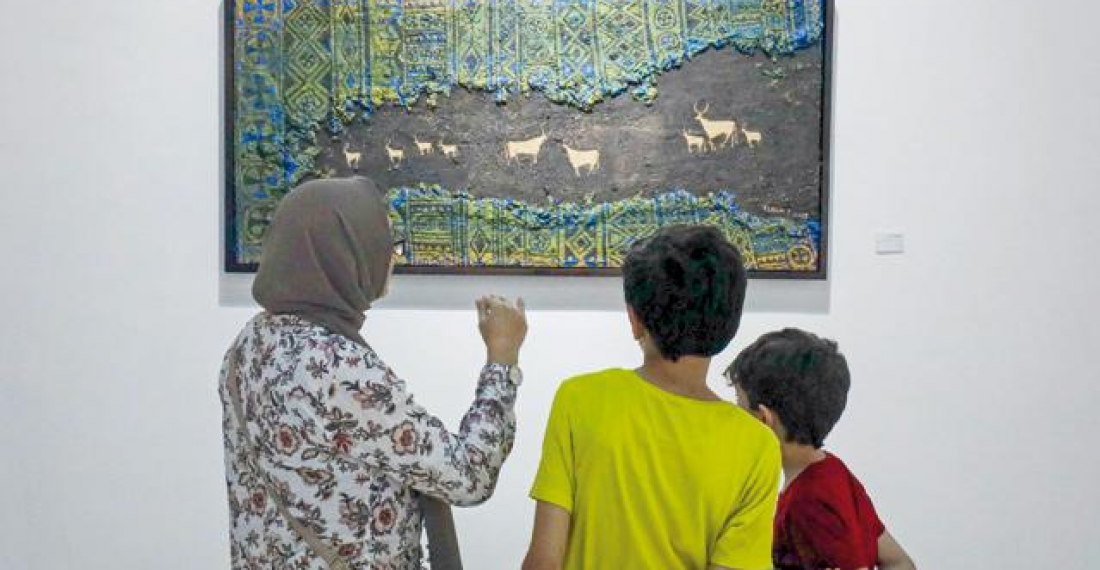Libya's city of Benghazi is hosting a 'week of culture' which features art, music and theatre. Much of the artwork depicts war and recovering from it, as Libya's citizens prepare to turn a new chapter towards peace.
The event is being held at the headquarters of the Al-Barah Foundation, an art and cultural space located in the heart of Benghazi.
The aim of the cultural week is to revive the artistic and cultural life of Benghazi – a city long associated with violence.
"It's an honour to have an exhibition for the first time in Benghazi," said Elham el-Ferjani, an artist who travelled from the capital Tripoli in the country's west especially for the event. Ferjani's work is inspired by Libyan desert rock art, Amazigh (Berber) culture and the North African country's decade of conflict.
The event also provides an opportunity for artists from all over the country to meet and share joy after a decade of conflict.







